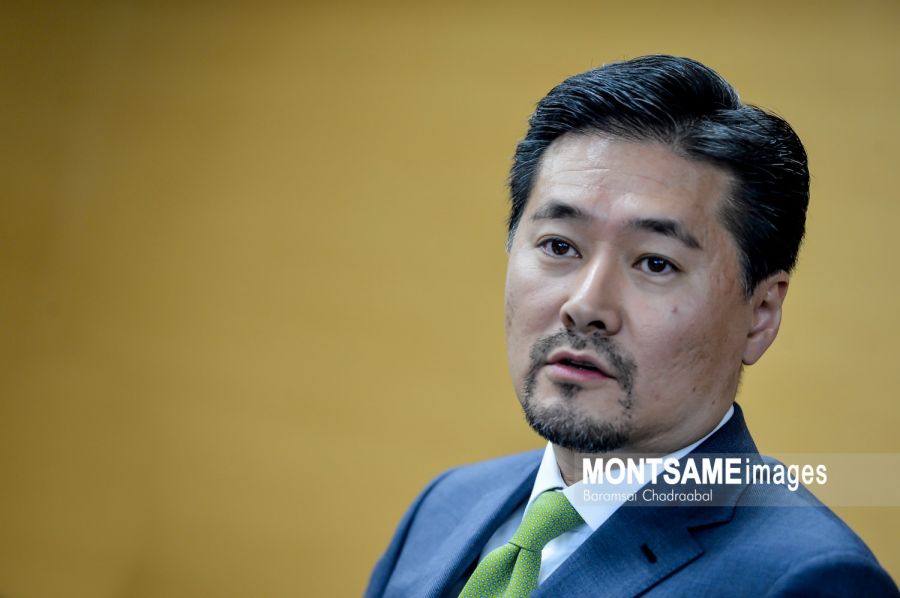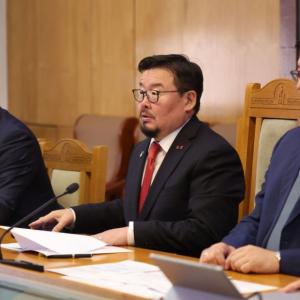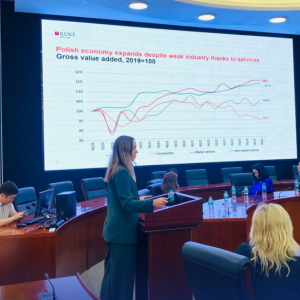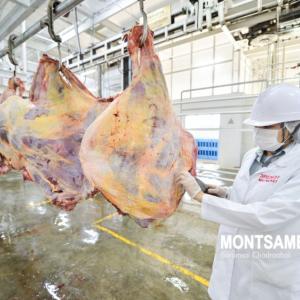H.Amartuvshin: DBM is striving to reduce the volume of non-performing loans
Economy
Ulaanbaatar /MONTSAME/ MONTSAME interviewed Chief Executive Officer of the Development Bank of Mongolia (DBM) H.Amartuvshin.
Some media outlets
have published articles about those who have not paid back their loans to the
Development Bank of Mongolia. Are those articles credible?
-
I saw the newspaper article. I do not know if you have noticed, but it was an
audit report made on DBM’s operation by the Government in 2016. There was also
data on the bank’s loan portfolio of that time. Three years have passed since then. So, there
are companies that have completely settled their debts during that period of
time. A lot of changes have been made to DBM’s balance sheet and loan portfolio
and relating laws and regulations since 2016. For instance, the bank’s loan
portfolio amounted to MNT 6 trillion in 2016, of which MNT 3.3 trillion was
invested in over 350 projects and programs with a stipulation to be repaid from
the state budget, MNT 1.2 trillion was loaned to more than 1,600 companies
through commercial banks, and MNT 1.6 trillion was loaned for 17 projects and
programs directly from the Development Bank. DBM transferred all of the
projects and programs associated with the state budget to the Ministry of
Finance at the end of 2016. Some of the loans directly taken out from DBM have
been fully paid off by the companies and some are being repaid as scheduled. In
particular, Erdenes Tavantolgoi JSC settled its loan of USD 200 million one
year ahead of schedule in October, 2018. Also, the Central Geological
Laboratory of Mongolia, PIMM LLC, and Baganuur JSC fully settled their loans.
However, the newspaper article mistakenly reported that the companies have not
paid off their loans yet.
Moreover, with a
decision of the Mongolian Parliament and Government to amend loan agreements in
order to make them loans to be repaid from its revenues, Mongolian Railway
state-owned shareholding company’s loan of MNT 506.2 billion and Amgalan
Thermal Power Plant LLC’s loan of MNT 191.9 billion were transferred to the
Government.
There are enterprises
that have been repaying their loans as per or ahead of schedule. Specifically,
Moncement plant have paid back USD 33.4 million out of USD 65 million it
received from DBM and now owes USD 31.6 million. Foreign currency loans expose
companies to exchange rate risks. In other words, for some major enterprises,
the amount of their remaining debt in MNT does not decrease even when they make
their repayments as scheduled due to the increase in exchange rates. For instance,
State Housing Corporation state owned company faces this issue as a part of its
loan has been granted in a foreign currency.
Could you elaborate on
the loan repayment progress?
-
As of today, debts of over MNT 380 billion are due to be settled from the loans
of MNT 1.2 trillion provided to over 1,600 companies through commercial
banks. The loan agreements’ term comes to an end in late 2020.
Has the portfolio of
non-performing and overdue loans decreased? How is the progress so far?
-
In 2016, the size of the bank’s active assets reached MNT 6.8 trillion with loan portfolio
of MNT 6 trillion and the volume of overdue and non-performing loans was quite
high. Thanks to a series of actions, the Development Bank that had a loss of
over MNT 190 billion have seen profits over the past two years. As might be
expected, some actions such as the increase of the risk funds adversely
affected the bank’s profitability.
As of today, DBM’s
active assets amount to MNT 4.2 trillion with loan portfolio of MNT 2.7
trillion.And non-performing loans make up 11.9 percent of the loans as of the
first half of the year. We are striving to diminish this percentage in short
and mid-terms.
What would you say
about the financial misconduct valued at MNT 13 trillion mentioned in the
newspaper article?
-
It is not MNT 13 trillion. At the time, misconduct costing MNT 1.3 trillion was
found during the investigation in 2016. With regard to this, the Government of
Mongolia gave DBM authorities directives on eradication of the malpractice and
referral of the case to legal authorities. Thus, the relevant documents have
been handed over.
How are the repayments
of the problem loans detected during this year’s government investigation
going?
-
The Cabinet Secretariat transferred the projects that are not making repayments
on the due date to the prosecutor’s office. Some are failing to make
repayments on time due to exchange rate risks, failures in their activities,
and misuse of their loans and this harms the bank’s operation. As it could be
required to increase the risk funds at the end of the year, we are working hard
with support of the government and in collaboration with legal authorities to
see concrete results.

 Ulaanbaatar
Ulaanbaatar












































































